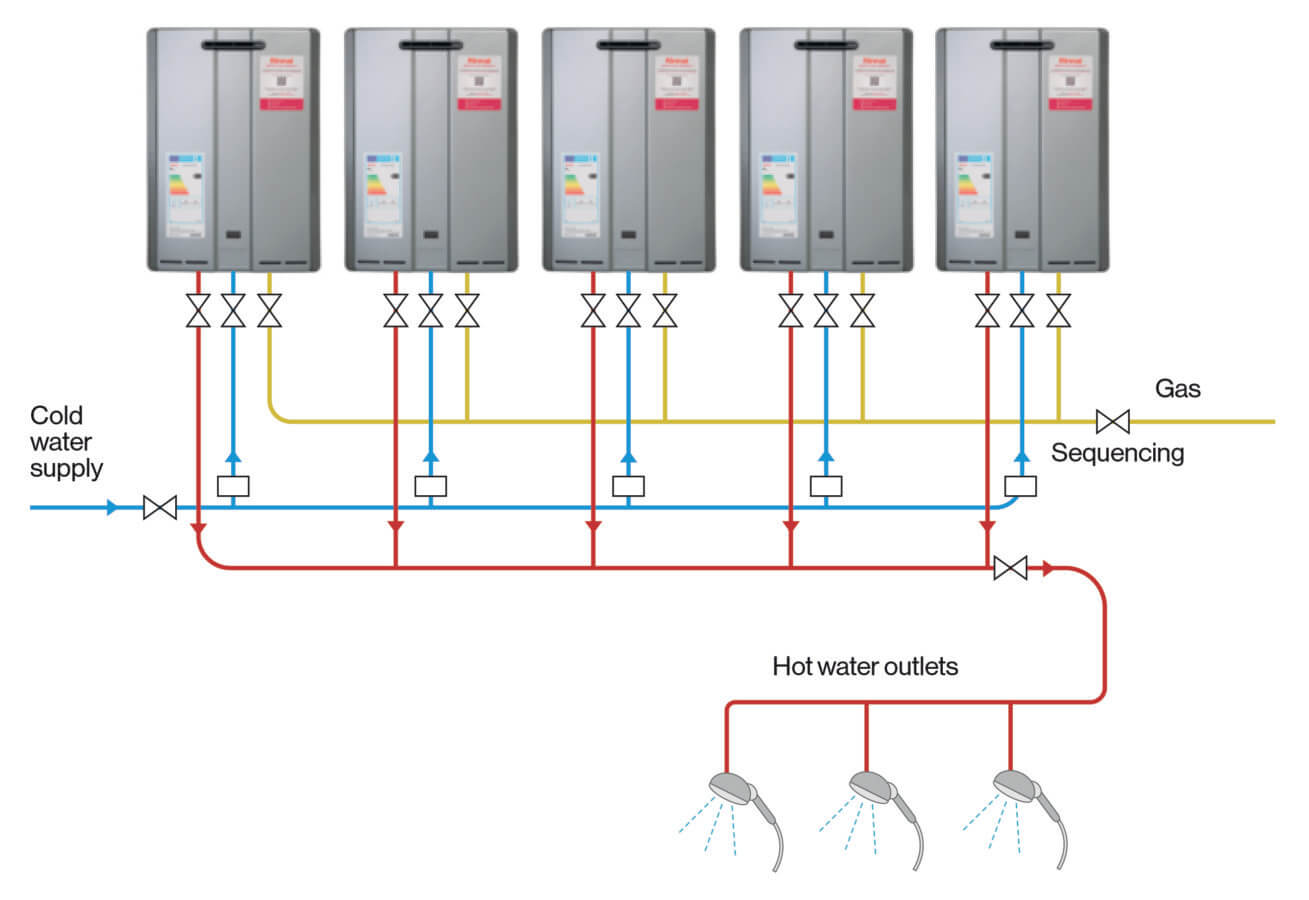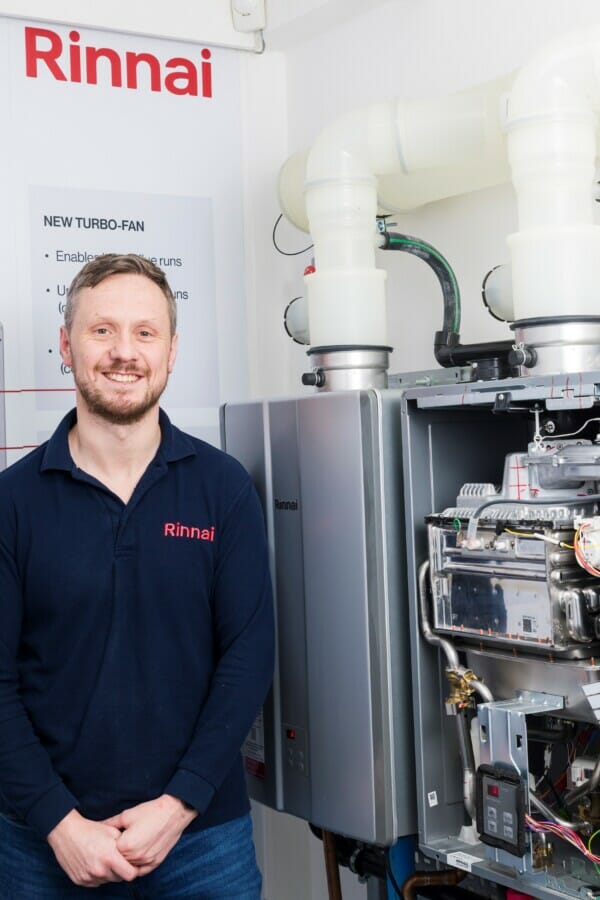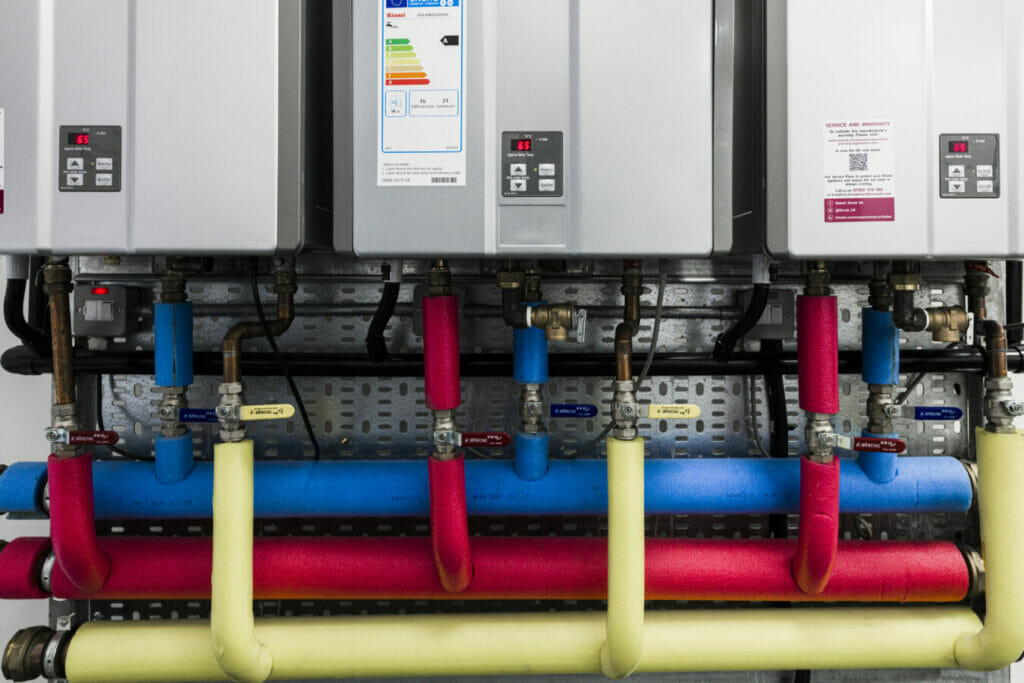
RINNAI HEATING AND HOT WATER UNITS SUPPLYING LIMITLESS HOT WATER ON DEMAND TO ALL OFF-GRID sITES
Chris Goggin reviews the operational and ecological benefits of using BioLPG and DME as an alternative fuel source for off-grid rural domiciles and businesses.

Chris Goggin
Rinnai hot water heating units and systems which are off-grid can be powered by LPG and BioLPG – a lower carbon intensive alternative source of fuel. Alternative energy is currently in demand due to recent developments in Ukraine that have radically altered the global energy landscape.
Current energy market conditions could potentially introduce further alternative fuel sources such as renewable biofuel Dimethyl ether (DME). Renewable DME is similar to LPG. R DME is a molecule-based fuel that can be produced through a wide range of renewable feedstocks which allows for quick and long-term sustainable production.
R DME combusts cleanly and releases no “soot” emissions. Dimethyl ether has many fuel properties that make it easily used in sites and appliances using heating oil. It has a very high cetane number, which is a measure of the fuel’s ignitibility in compression ignition engines. The energy efficiency and power ratings of DME and heating oil engines are virtually the same. R DME is safe and reduces greenhouse gas emissions by up to 85% better improving local air quality.

Prior to this development LPG was the lowest carbon emitting source of fuel for the 15% of UK businesses and domiciles that function off-grid. BioLPG contains an almost identical chemical structure to LPG, meaning that a current Rinnai system is futureproofed and can accept either BioLPG or LPG.
BioLPG consists of renewable materials derived from a diverse mix of sustainable biological feedstocks and processes. Supported through cleaner sourced chemical ingredients BioLPG provides huge benefits in carbon reductions and air quality, compared to traditional off-grid fuels such as heating oil.
BioLPG carries identical low NOx, SOx and PM as conventional LPG. NOx and SOx are acronyms relating to Nitrogen (NOx) and sulphur (SOx) oxide emissions which result from energy consumption and production that involves combustion. PM relates to particulate matter – solid matter and liquid droplets released by various chemical fluctuations generated through technology.
Each unit of energy produced for consumption is responsible for releasing a measurement of harmful carbon dioxide. Coal releases 100 units of carbon dioxide per unit of energy yielded; petrol and diesel produce 70 units – natural gases 50 units. BioLPG releases no harmful emissions at all. DME performs to a higher standard when compared to heating oil, for instance PM emissions are virtually nullified.
As well as LPG and BioLPG, additional low carbon fuels are beginning to be produced, tested and approved for future and current use. DME has been tested extensively on vehicle use in Europe and North America. In one instance of testing a customer managed to operate 10 vehicles for 750,000 miles using DME as opposed to traditional vehicle fuels.
BioLPG is conceptually renewable and sustainable, as it is made from a blend of waste, residues, and sustainably sourced materials. BioLPG, can be described as an eco-propane, the chemical makeup of this gas is identical to LPG and is therefore compatible with existing in situ LPG products from a combustion perspective.
In the BioLPG manufacturing process, feedstocks undergo a series of complex treatments. They are combined with hydrogen in a process called hydrogenolysis which separates and purifies their energy content.
During the refining procedure, a variety of waste gases are produced that contain BioLPG. For every tonne of biodiesel, around 50 kg of BioLPG is produced from this gas stream. This co-product is then purified to make it identical to conventional propane.
LPG and BioLPG is the ideal solution for rural or off-grid commercial business use. An adaptation to BioLPG is simple and swift. New BioLPG units can be “dropped in.” A drop-in BioLPG is transmissible with existing LPG infrastructure, such as LPG storage tanks, water heating systems or any other existing LPG appliance. No expensive or intricate upgrades on current off-grid gas outlets are required to use BioLPG.
The transition to BioLPG will ensure businesses can continue to operate normally and efficiently with limited disruption ensuring minimum stress as no technical adjustments are required to your heating and hot water system. BioLPG can be considered a convenient and non-intrusive minimum-carbon solution for off-grid businesses and homes.
BioLPG performance is indistinguishable from that of LPG. BioLPG provides instant on-demand heat and hot water without storage and limited adjustments required for use.
Europe and the wider world have entered a new age in many respects, certainly so in terms of energy provision and security. Coupled with global decarbonisation targets and efforts, how separate nations provide domestic power and where this fuel is imported from has become a serious issue. BioLPG and other fuels like DME successfully navigate these ethical issues and deliver all suited power requirements.
BioLPG can be considered to maintain equal performance when compared to LPG, as DME can also be when measured against diesel. BioLPG is as easily purchased and utilized as LPG and helps create cleaner local air and helps meet international decarbonisation targets.
Rinnai is a global leader in the manufacture of hot water heating units, producing over 2 million units a year. Rinnai hot water units and systems operate on each of the 5 continents and has an established reputation for high performance, robust cost efficiency and extended working lives.
Rinnai products offer a limitless supply of instantaneous temperature controlled hot water. Rinnai units are UKCA certified and are A-rated for efficiency. Any unit can be delivered to any UK site within 24 hours.
Rinnai units are also 20% blends hydrogen-ready, and the company offers comprehensive training courses and technical support through their “Help Me Choose” webpage.
For more information on the RINNAI product range visit
